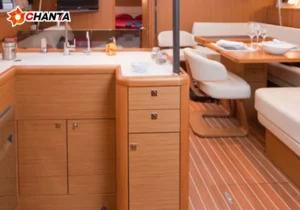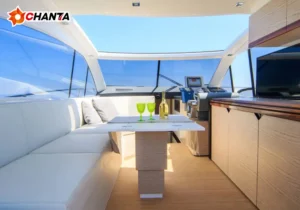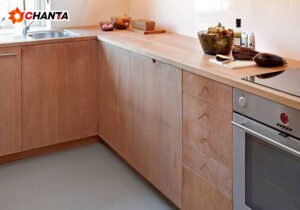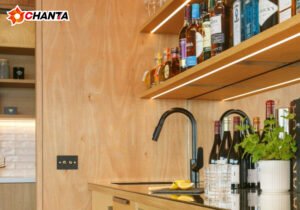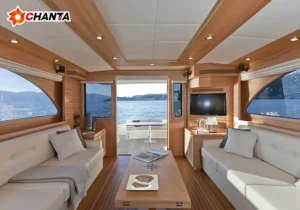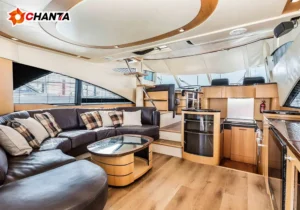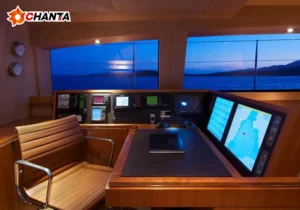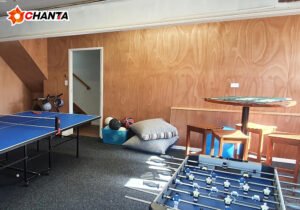Table of contents
When professionals in shipbuilding, construction, or furniture manufacturing look for reliable raw materials, marine plywood always comes into consideration. This special plywood resists moisture, provides structural stability, and performs well under demanding conditions. However, one of the most critical factors that buyers evaluate is thickness. The most requested options in the global market remain marine plywood thickness 9 mm / 12 mm / 18 mm / 25 mm. Each thickness serves different purposes, and choosing the right one helps procurement teams save costs, improve safety, and extend the service life of their projects.
Why Thickness Matters in Marine Plywood
Thickness directly affects performance. Thin panels are light, easy to transport, and suitable for decorative or non-structural work. Thicker sheets provide strength, heavy load-bearing ability, and long-term durability. Selecting the wrong thickness often results in failures such as bending floors, weak screw holding, or excessive project costs. Therefore, understanding thickness specifications is not just a technical matter but a business decision that impacts total project efficiency.
Comparison of Common Marine Plywood Thickness
| Thickness | Weight & Handling | Applications | Advantages |
|---|---|---|---|
| 9 mm | Lightweight, flexible | Interior linings, furniture parts, partitions | Low cost, easy cutting, fast installation |
| 12 mm | Moderate weight, versatile | Cabinetry, wall panels, decorative projects | Balance of strength and lightness |
| 18 mm | Heavy, very strong | Boat decks, flooring, structural furniture | High load capacity, strong fastener holding |
| 25 mm | Very heavy, maximum strength | Marine hulls, exterior platforms, heavy-duty flooring | Superior durability, long service life |
Detailed Look at Each Thickness
9 mm Marine Plywood
Buyers choose 9 mm marine plywood for lightweight applications. Furniture factories use it for drawer bottoms, back panels, or partitions where weight reduction is important. Shipbuilders apply 9 mm sheets in interior linings or curved structures that require flexibility. Contractors value 9 mm panels for temporary structures and decorative wall treatments because they are cost-efficient and easy to handle on-site. For projects that do not require structural strength, 9 mm offers a smart balance between performance and economy.
12 mm Marine Plywood
12 mm marine plywood has become the most versatile option in global markets. It provides enough durability for cabinetry, shelving, and wall linings, yet remains light enough for easy installation. Interior designers appreciate its smooth surface, which takes paint, laminates, or veneers without difficulty. In coastal regions where humidity is high, 12 mm panels resist warping better than ordinary plywood, making them suitable for kitchens, bathrooms, and offices. Procurement teams often standardize on 12 mm for multiple applications to streamline sourcing and inventory management.
18 mm Marine Plywood
18 mm marine plywood delivers the strength needed for heavy-duty applications. In marine construction, it supports boat decks, flooring, and bulkheads that must withstand continuous pressure. In building projects, contractors use 18 mm sheets for subflooring, staircases, and high-load furniture such as tables and beds. This thickness holds screws and bolts firmly, reducing the risk of loosening over time. Many factories order 18 mm in bulk because it provides reliable structural performance in both marine and non-marine environments.
25 mm Marine Plywood
25 mm marine plywood is the strongest and heaviest option available in this category. It serves in extreme applications such as marine hulls, exterior flooring, and outdoor decking where safety and durability cannot be compromised. Although 25 mm panels come at a higher cost and require more effort to transport, they provide long-term value by extending service life and reducing maintenance needs. Shipyards, ports, and heavy-duty infrastructure projects often specify 25 mm as the standard because of its ability to handle constant stress and load.
Certifications That Add Value
Buyers should not focus on thickness alone. International certifications guarantee quality and compliance:
- BS 1088 Marine Plywood – Globally recognized for marine use.
- FSC Certification – Ensures sustainable and legal sourcing.
- CARB / EPA TSCA Title VI – Confirms low formaldehyde emissions for the US market.
- CE Marking – Required for European Union imports.
Always request certifications along with technical data sheets when purchasing marine plywood in any thickness. This ensures that the panels not only perform well but also meet environmental and safety regulations.
Sourcing Tips for B2B Buyers
Marine plywood suppliers operate in Asia, Africa, and South America. When negotiating, B2B buyers should consider minimum order quantities, production capacity, and logistics terms such as FOB or CIF. A reliable supplier provides inspection reports, clear lead times, and flexible options for custom thicknesses beyond 9 mm, 12 mm, 18 mm, and 25 mm. Bulk buyers often request the standard size of 1220×2440 mm because it fits into shipping containers efficiently and matches common design requirements worldwide.
Final Recommendations
Choosing the right thickness makes a real difference in performance and cost control. Use 9 mm for lightweight furniture and partitions, 12 mm for versatile cabinetry and walls, 18 mm for structural flooring and decks, and 25 mm for extreme strength in marine and outdoor projects. Always combine thickness selection with certified quality to achieve reliable, safe, and long-lasting results. For procurement teams, understanding these thickness categories ensures smooth project execution and strong returns on investment.


